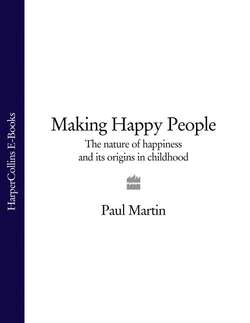Читать книгу Making Happy People: The nature of happiness and its origins in childhood - Paul Martin - Страница 34
15. Wisdom
ОглавлениеAs we saw earlier, happiness depends to a considerable extent on how we think about the world, as well as our emotional responses. Someone who can think straight and solve real-life problems is better equipped to be happy.
One of the most valuable gifts that parents and teachers can bestow on children is wisdom – which is not as grand and rarefied as it might sound. There is nothing particularly mysterious or exclusive about wisdom. What it boils down to is an armoury of pragmatic knowledge about the world, together with some effective ways of thinking about problems. It is not the same as ‘common sense’, which often amounts to little more than prejudice or being wise after the event. Wisdom means being able to understand and deal with the challenges, both great and small, that we all encounter in everyday life. Wise people can identify the problem and then work out how to resolve it in a practical way. They remain objective and avoid being blinded by their own emotions. Wise people also recognise the inherent uncertainties of life, appreciate the limits of their own knowledge, and cope well with ambiguity.
The great philosophers of ancient Greece taught that people are happier if they acquire the thinking skills that enable them to make the right choices, develop the right attitudes, and cope with adversity. The evidence from modern science bears this out. Various studies have shown that individuals who possess wisdom tend to have happier lives. Wisdom makes a particularly big contribution to happiness in old age.
None of this implies that children must attend philosophy classes in order to be happy (although there is much to recommend this idea). It simply means that parents and teachers can help children greatly by equipping them with practical strategies for coping with everyday problems. These can include very simple rules of thumb, such as always trying to learn from bad experiences (‘what does not destroy me makes me stronger’), not setting wildly unrealistic goals, not seeing everything in black and white, and accepting that bad things sometimes just happen.
One of the main ways in which children acquire wisdom is by observing how their parents behave. Children are more inclined to do what their parents do than what they say, which means that parents need to think about their own behaviour and set a good example. Education obviously plays a key role as well. Well-educated people live healthier and happier lives, partly because they have the knowledge and wisdom to make the right choices and avoid harm. We will return to education and its contribution to happiness in later chapters.
